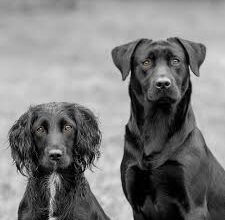
Introduction
When it comes to providing the best care for your pet, pet insurance plays a crucial role in helping to cover unexpected medical expenses. Pets Best Insurance is one of the top names in the pet insurance industry, known for its reliable service and broad coverage. However, a common question pet owners have is, “Where is Pets Best Insurance accepted?” Understanding where your pet’s insurance is accepted ensures you have access to the best care when you need it most. This article will explore the locations, benefits, and coverage network of Pets Best Insurance and how it impacts your choice of veterinary care.
What is Pets Best Insurance?
Overview of Pets Best Insurance
Pets Best Insurance provides affordable, comprehensive insurance plans designed to meet the healthcare needs of your pets. Founded in 2005, Pets Best has become a trusted partner for pet owners, offering various plans ranging from accident-only policies to comprehensive medical insurance plans. Their network includes thousands of veterinary clinics, ensuring that your pet can receive top-quality care no matter where you are.
Types of Coverage Offered by Pets Best Insurance
Pets Best offers a variety of coverage options tailored to different needs and budgets.
- Accident & Illness Plan: This covers accidents, illnesses, and a wide range of treatments, including surgeries, medications, and diagnostic tests.
- Accident-Only Plan: As the name suggests, this plan covers only accidents, such as broken bones or injuries caused by accidents.
- Wellness Plan: An optional add-on that covers routine care like vaccinations, flea and tick treatments, and wellness exams.
Each plan can be customized to fit the needs of your pet, from puppies to seniors, ensuring all aspects of your pet’s health are covered.
Benefits of Having Pets Best Insurance
- Affordable Premiums: Pets Best provides flexible pricing, offering affordable options based on your pet’s age, breed, and location.
- Customizable Plans: You can add wellness or other supplementary coverage as needed.
- Fast Reimbursement: Pets Best typically offers quick reimbursement, which can help you manage the costs of veterinary treatments without undue stress.
Where is Pets Best Insurance Accepted?
Nationwide Acceptance of Pets Best Insurance
Pets Best Insurance is accepted at a wide network of veterinary hospitals across the United States. This ensures that you can seek treatment for your pet at many established veterinary clinics, emergency hospitals, and specialists, regardless of your location. Pets Best partners with thousands of providers, from small independent clinics to larger veterinary chains.
How to Find a Veterinarian That Accepts Pets Best Insurance
Pets Best makes it easy for policyholders to find a participating veterinarian through their vet finder tool available on their website. Simply enter your location, and the tool will provide a list of veterinarians in your area who accept Pets Best Insurance. This feature is particularly helpful if you’re traveling or have just moved to a new area and need to find a trusted vet.
- Online Directory: Pets Best provides an online directory where you can search for clinics by zip code or city.
- Vet Partner Network: If your vet isn’t listed, you can contact Pets Best directly to inquire whether they can reimburse for out-of-network care, as some clinics may still accept reimbursement claims.
International Coverage
While Pets Best Insurance is widely accepted across the U.S., it’s important to note that its coverage is primarily domestic. For international travel, Pets Best provides limited reimbursement options for treatment received abroad. Pet owners planning to travel overseas with their pets should check the policy details and ensure they understand the limitations.
Specific Veterinary Types That Accept Pets Best Insurance
Pets Best Insurance covers a variety of veterinary care options, including:
- General Practice Vets: Most general veterinarians across the U.S. accept Pets Best Insurance, making it easy to maintain your pet’s health and well-being.
- Specialists: Some veterinary specialists (e.g., cardiologists, oncologists, orthopedic surgeons) are included in the Pets Best network, ensuring specialized care is covered.
- Emergency & Urgent Care: In case of emergencies, many emergency animal hospitals and urgent care centers accept Pets Best Insurance, providing you with the peace of mind that your pet will be treated even in critical situations.
Frequently Asked Questions (FAQs)
FAQs About Pets Best Insurance Acceptance
Q1: Does Pets Best Insurance cover all vet visits?
- Pets Best Insurance covers most vet visits related to accidents and illnesses. However, wellness visits, unless specifically included in your plan, may not be covered.
Q2: How do I submit a claim to Pets Best Insurance?
- To submit a claim, you can upload your invoice and a completed claims form to Pets Best’s online portal. Claims are typically processed within 10-14 business days.
Q3: Can I use Pets Best Insurance at any vet in the U.S.?
- While Pets Best is accepted at most veterinary clinics, it’s always a good idea to confirm that your specific vet is part of their network, especially if it’s an emergency visit.
Q4: What should I do if my vet doesn’t accept Pets Best Insurance?
- If your vet doesn’t directly accept Pets Best Insurance, you can still submit your bills for reimbursement, as long as the treatment is covered under your policy.
Q5: How does Pets Best handle pre-existing conditions?
- Pets Best Insurance does not cover pre-existing conditions, which means any health problems your pet has before enrolling may not be covered. However, once a pet is insured, any future issues unrelated to the pre-existing conditions may be covered.
Pros of Pets Best Insurance
The Advantages of Choosing Pets Best Insurance
- Wide Acceptance: With thousands of participating veterinary clinics, Pets Best Insurance offers flexibility and convenience in choosing care for your pet.
- Comprehensive Coverage: Their plans cover everything from routine care to emergency surgeries, offering peace of mind for pet owners.
- No Payout Limits: Unlike some insurance providers, Pets Best does not place annual payout limits on many of its plans, ensuring that your pet’s expensive medical needs are met without financial constraints.
- Quick Claim Processing: Pets Best offers efficient claim processing, ensuring that reimbursement is handled swiftly to reduce your financial burden.
Conclusion
In conclusion, Pets Best Insurance is accepted at a broad range of veterinary practices across the United States, making it a versatile and reliable choice for pet owners. With their extensive network, customizable plans, and fast claim processing, you can be confident that your pet’s health will be in good hands. Whether you’re seeking routine check-ups, specialty care, or emergency services, Pets Best provides comprehensive coverage and support when you need it most.





